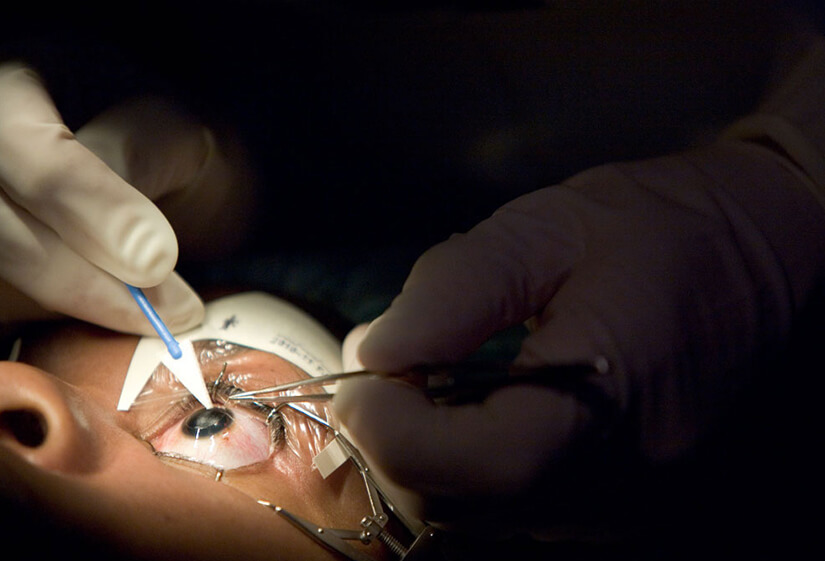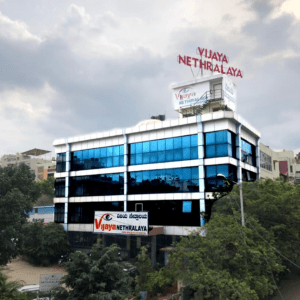Introduction:
In recent years, LASIK eye surgery has gained popularity as a life-changing solution for individuals seeking to improve their vision without the hassle of glasses or contact lenses. While LASIK boasts a high success rate, there are instances when the procedure may not yield the desired results. In this article, we will delve into the topic of what happens if LASIK fails, exploring the potential reasons for failure, the risks involved, and alternative options available to rectify any complications.
Understanding LASIK Surgery:
Before we explore the possible complications of LASIK, let’s briefly understand what this procedure entails. LASIK, or Laser-Assisted In Situ Keratomileusis, is a refractive eye surgery that reshapes the cornea to correct vision problems such as nearsightedness, farsightedness, and astigmatism. It is a highly effective procedure that has provided a clear vision to millions of people worldwide.

Common Reasons for LASIK Failure:
While LASIK is generally considered safe and effective, it’s not without its risks. Here are some common reasons why LASIK may fail:
1. Inadequate Screening
One of the crucial factors contributing to LASIK failure is inadequate screening of candidates. Not everyone is a suitable candidate for LASIK, and a comprehensive pre-operative evaluation is essential to determine eligibility.
2. Surgeon Inexperience
The skill and experience of the surgeon performing LASIK play a significant role in its success. Inexperienced surgeons may make errors during the procedure, leading to complications.
3. Corneal Flap Complications
During LASIK, a flap is created on the cornea to access the underlying tissue. If the flap is not created correctly or does not adhere properly after the procedure, it can result in visual disturbances.
4. Undercorrection or Overcorrection
Sometimes, LASIK may not fully correct a patient’s vision, leaving them with residual refractive errors. On the other hand, overcorrection can also occur, causing vision problems.
5. Dry Eye Syndrome
LASIK can temporarily disrupt the normal production of tears, leading to dry eye syndrome. If not managed properly, this condition can cause discomfort and vision issues.
Risks and Complications:
When LASIK fails, patients may experience various risks and complications, including:
– Visual Disturbances
Patients may encounter halos, glare, or double vision, especially during nighttime.
– Regression
Some individuals may experience a regression of their initial vision correction, necessitating the need for glasses or contact lenses again.
– Irregular Astigmatism
Corneal irregularities can result in astigmatism, causing distorted and blurry vision.
– Chronic Dry Eye
Persistent dry eye syndrome can be a long-term consequence of LASIK failure, leading to discomfort and visual disturbances.
Exploring Alternatives:
If LASIK fails to deliver the expected results or complications arise, there are alternative options to consider:
– PRK (Photorefractive Keratectomy)
PRK is a laser eye surgery similar to LASIK but without the creation of a corneal flap. It may be a suitable choice for individuals with thin corneas or those who have experienced LASIK failure.
– Implantable Contact Lenses
Implantable contact lenses are surgically placed inside the eye to correct vision. This option may be suitable for those with extreme refractive errors or complications from LASIK.
– Glasses or Contact Lenses
In some cases, reverting to traditional eyewear, such as glasses or contact lenses, may be the safest and most effective solution.
Author Details:
Dr. Sushruth Appajigowda holds a prominent position as a Cornea, Cataract, Glaucoma, and LASIK Surgeon in Bangalore. He serves as the chief Cataract and Refractive surgeon at Vijaya Nethralaya Eye Hospital, Nagarbhavi Bangalore. Renowned as one of the finest LASIK surgeons nationwide, he brings with him over 12+ years of experience across multiple LASIK platforms, including ZEISS, ALCON, SCHWIND, AMO, and Bausch and Lomb. Having successfully conducted over 5000 LASIK procedures, Dr. Sushruth holds the title of a Certified Refractive Surgeon and a Fellow of the All India Collegium Of Ophthalmology. Furthermore, he stands as a distinguished speaker at various National and International Forums, using his expertise to guide you in selecting the most suitable procedure based on your health requirements.

Conclusion:
In conclusion, while LASIK eye surgery is generally successful, there are instances when it may not provide the desired outcome. It’s essential for individuals considering LASIK to undergo thorough screening, choose an experienced surgeon, and be aware of the potential risks. In the event of LASIK failure, alternative vision correction options are available to help individuals regain clear vision and improve their quality of life.
FAQs:
1. Is LASIK a guaranteed procedure, or can it fail?
LASIK is highly successful, but it is not a guarantee. Various factors can contribute to its failure, such as inadequate screening or surgeon inexperience.
2. What are the most common complications of LASIK failure?
Common complications of LASIK failure include visual disturbances, regression of vision correction, irregular astigmatism, and chronic dry eye.
3. Can LASIK be repeated if it fails initially?
Yes, LASIK can sometimes be repeated to improve results, but it depends on the individual case and the surgeon’s recommendation.
4. Are there any non-surgical alternatives to correct vision if LASIK fails?
Yes, alternatives like PRK (Photorefractive Keratectomy) and implantable contact lenses are available for vision correction if LASIK fails.
5. How can I minimize the risk of LASIK failure?
To minimize the risk of LASIK failure, choose a qualified surgeon, follow pre-operative instructions carefully, and communicate any concerns with your healthcare provider.












